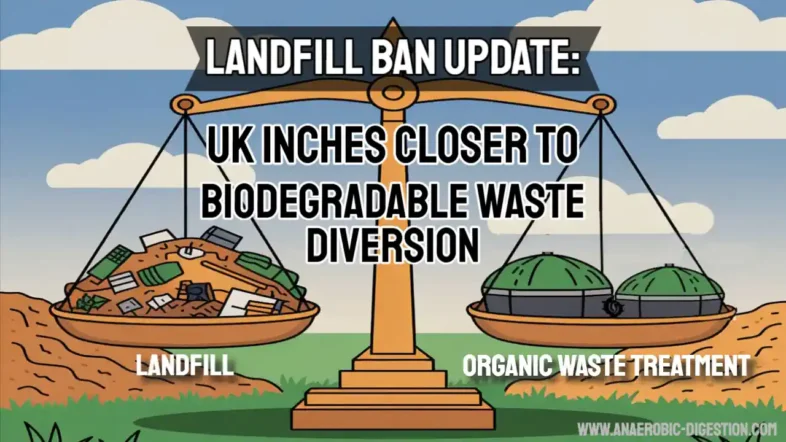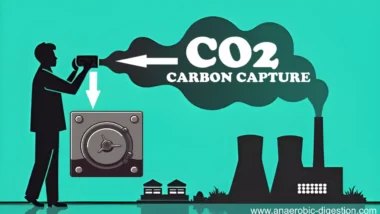Progress Update: Is the UK's Biodegradable Waste to Landfill Ban Finally Gaining Momentum?
The implementation of a comprehensive ban on biodegradable waste to landfill remains an urgent environmental necessity, yet one that continues to face delays across the United Kingdom. Despite decades of policy discussions, the actual implementation timeline for this “landfill ban” has been repeatedly pushed back.
While Scotland has set a more concrete deadline of 2026 (previously 2025), England still lacks a definitive implementation date. This continued landfilling of organic waste not only wastes valuable resources that could fuel anaerobic digestion and biomethane production but also significantly contributes to climate change through methane emissions and causes water and air pollution.
Key Takeaways
- Environmental Urgency: A ban on biodegradable waste to landfill is critical for reducing methane emissions and pollution, but implementation has been repeatedly delayed.
- Balancing Act: Implementation requires careful planning to ensure alternative infrastructure is ready, avoiding waste management crises.
- Scottish Leadership: Scotland has committed to implementing the ban by 2026, while England has no firm deadline.
- Opportunity for Biogas: The biogas industry stands to benefit significantly from diverted organic waste streams.
- Infrastructure Gap: Substantial investment in alternative treatment facilities is needed before full implementation.
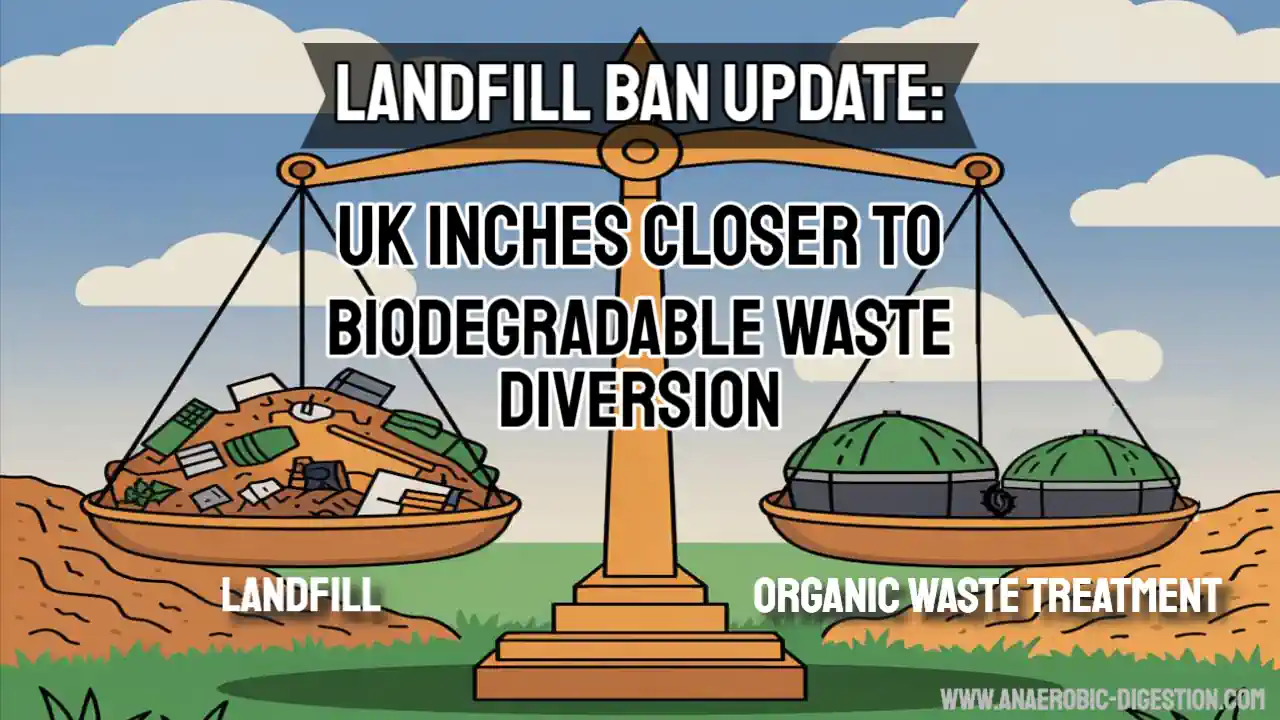
The Environmental Imperative
Biodegradable waste in landfills generates significant methane emissions—a greenhouse gas 28-36 times more potent than carbon dioxide over a 100-year period, according to the Intergovernmental Panel on Climate Change. In addition to these climate impacts, landfilled organic waste produces leachate that can contaminate groundwater and contribute to air pollution through landfill gas.
The UK's Committee on Climate Change has identified diverting biodegradable waste from landfill as a key component in meeting the country's legally binding carbon reduction targets. According to WRAP (Waste and Resources Action Programme), around 10 million tonnes of food waste alone is still generated annually in the UK, with a significant portion ending up in landfill.
Scotland's More Ambitious Approach
The Scottish Government has taken a more proactive stance, initially setting a 2025 deadline for implementing a complete ban on biodegradable municipal waste going to landfill. Although this has now been extended to 2026, it still represents a more concrete commitment than England's approach.
According to Zero Waste Scotland, this ban will help Scotland meet its target of reducing emissions by 75% by 2030. The delay from 2025 to 2026 was implemented to allow local authorities and waste management companies additional time to develop the necessary infrastructure and alternative treatment capacity.
England's Cautious Approach
In February 2025, the Department for Environment, Food and Rural Affairs (Defra) published responses to its 2023 Call for Evidence regarding the elimination of biodegradable waste to landfill in England from 2028. Rather than establishing a firm implementation date, Defra is exploring:
- Expanding the list of separately collected wastes prohibited from landfill disposal without treatment
- Determining methods to eliminate wood waste from landfill disposal
- Extending focus to all biodegradable wastes simultaneously
Defra intends to undertake a full consultation on these policies in 2025, subject to ongoing policy developments and stakeholder engagement. According to Environmental Data Services, this cautious approach reflects concerns about infrastructure readiness and potential unintended consequences.
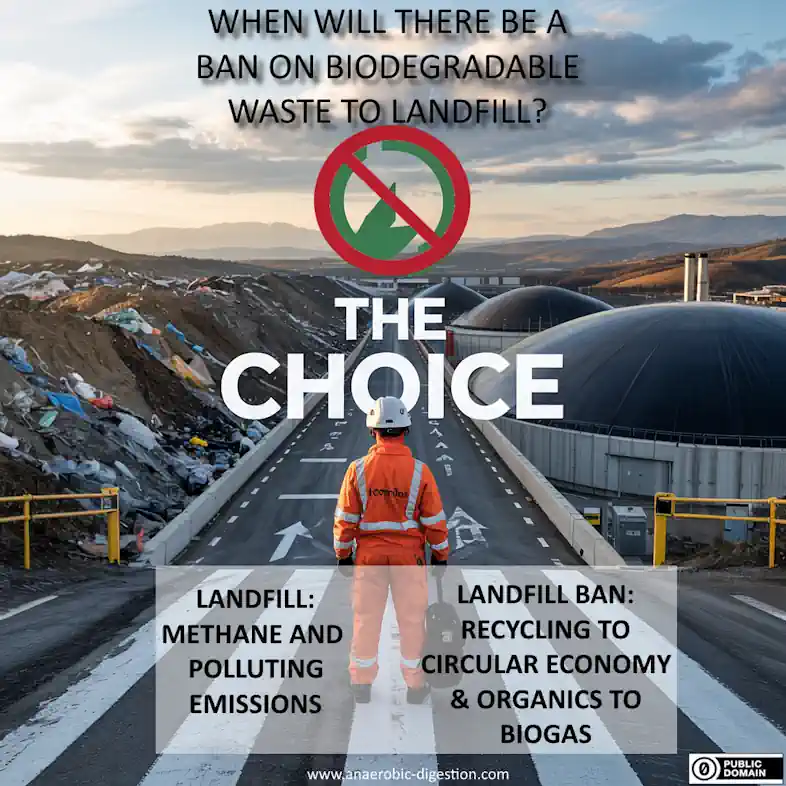
The Infrastructure Challenge
The consultation revealed several key implementation challenges:
- Operational Realities: Energy From Waste (EFW) facility shutdowns, seasonal variations in waste volumes, limited storage space, and waste infrastructure proximity all influence disposal decisions.
- Contingency Needs: Some landfill capacity must be maintained for situations when other disposal options are unavailable.
- Development Timeline: Sufficient time must be allowed for alternative treatment infrastructure development, including anaerobic digestion facilities.
The Environmental Services Association estimates that significant additional investment in waste treatment infrastructure will be required before a complete landfill ban can be successfully implemented.
Biogas Industry: Poised to Benefit
The anaerobic digestion and biogas sector stands to gain substantially from a biodegradable waste landfill ban. According to the Anaerobic Digestion and Bioresources Association (ADBA), diverting organic waste to anaerobic digestion could:
- Generate renewable energy in the form of biogas or biomethane
- Return nutrients to agricultural soils through digestate application
- Create new jobs in the green economy
- Provide a cost-effective waste management solution
The World Biogas Association suggests that properly harnessing organic waste could meet approximately 6% of the UK's total energy demand while significantly reducing greenhouse gas emissions.
The Case for Careful Implementation
Despite the urgent environmental case for a landfill ban, stakeholders emphasize that rushed implementation without adequate alternative infrastructure could lead to:
- Increased waste exports to other countries
- Higher waste management costs for local authorities and businesses
- Growth in illegal dumping and waste crime
- Emergency situations requiring exemptions
The Chartered Institution of Wastes Management advocates for a phased approach with clear milestones and support mechanisms to ensure a successful transition away from landfilling biodegradable waste.
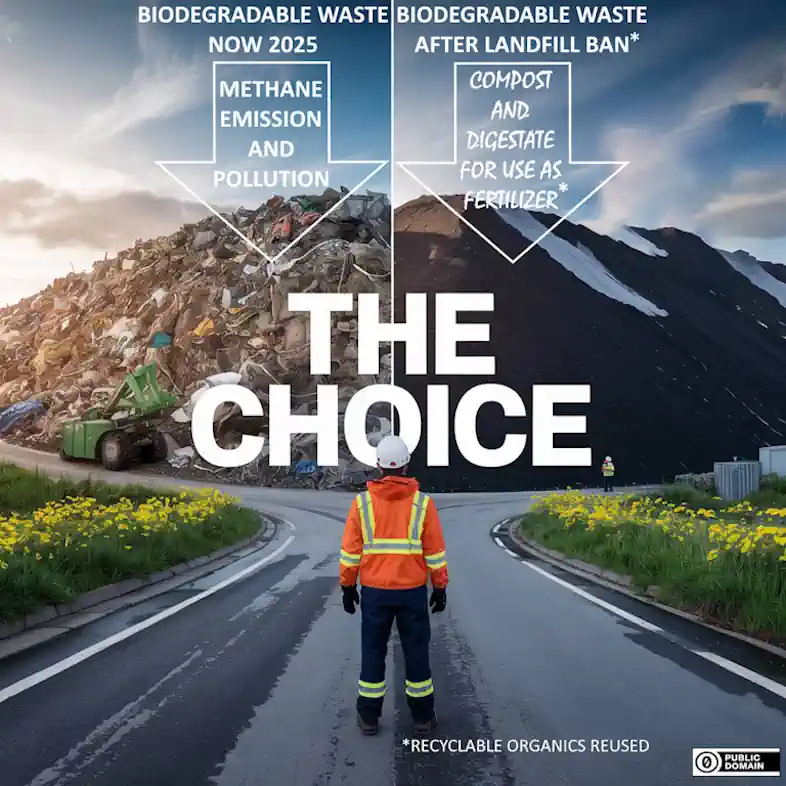
Conclusion
The ban on biodegradable waste to landfill represents a critical environmental policy that has faced persistent delays across the UK. While Scotland's commitment to implementation by 2026 shows leadership, England's more cautious approach reflects legitimate concerns about infrastructure readiness.
What remains clear is that this landfill ban is essential for meeting climate commitments, reducing pollution, and developing a more circular economy. The biogas industry is well-positioned to provide a beneficial alternative treatment route, but requires policy certainty to drive investment.
As the UK moves forward with consultation and policy development this year, the direction of travel is unmistakable: organic waste must be diverted from landfill to more sustainable treatment options. The challenge lies in balancing environmental urgency with practical implementation realities—ensuring the transition is both effective and economically viable.
Frequently Asked Questions
What is anaerobic digestion?
Anaerobic digestion is a biological process that breaks down organic material in the absence of oxygen, using microorganisms to produce biogas (primarily methane and carbon dioxide). This process can convert various organic wastes into renewable energy and nutrient-rich digestate.
What types of organic waste can be used for anaerobic digestion?
Many types of organic waste can be used, including food waste, agricultural residues, manure, sewage sludge, certain industrial organic by-products, garden waste, and other biodegradable materials. The ideal feedstock mix depends on the specific digester design and operating conditions.
What is biomethane, and how does it differ from biogas?
Biomethane is purified biogas that has undergone an upgrading process to remove carbon dioxide, hydrogen sulfide, and other impurities. While raw biogas typically contains 50-70% methane, biomethane contains 95-99% methane, making it equivalent to conventional natural gas and suitable for injection into gas grids or use as vehicle fuel.
What are the COP28 and COP29 methane pledges?
The COP28 methane pledge expanded on the Global Methane Pledge introduced at COP26, with over 150 countries committing to reduce methane emissions by at least 30% from 2020 levels by 2030. COP29 further strengthened these commitments with additional focus on implementation strategies and funding mechanisms, recognizing methane reduction as a critical short-term climate action strategy.
When will England ban organic waste from landfills?
England has not yet established a definitive date for banning all organic waste from landfills. However, Defra is exploring policies to eliminate biodegradable waste from landfill from 2028 and plans to undertake a full consultation on developed policies in 2025, pending ongoing policy developments and stakeholder engagement.
What materials does the Climate Change Committee recommend diverting from landfill?
The Climate Change Committee (CCC) recommends diverting five key materials from landfill: paper and card, food waste, garden waste, textiles, and wood. Defra is exploring policies to prohibit the disposal of these materials at landfill or incineration without appropriate treatment processes.
What happens to the digestate produced from anaerobic digestion?
Digestate, the solid and liquid residue remaining after anaerobic digestion, is rich in nutrients and can be used as a fertilizer or soil conditioner in agriculture. When produced from quality-controlled feedstocks, digestate can replace synthetic fertilizers, completing the nutrient cycle and providing additional environmental benefits.


